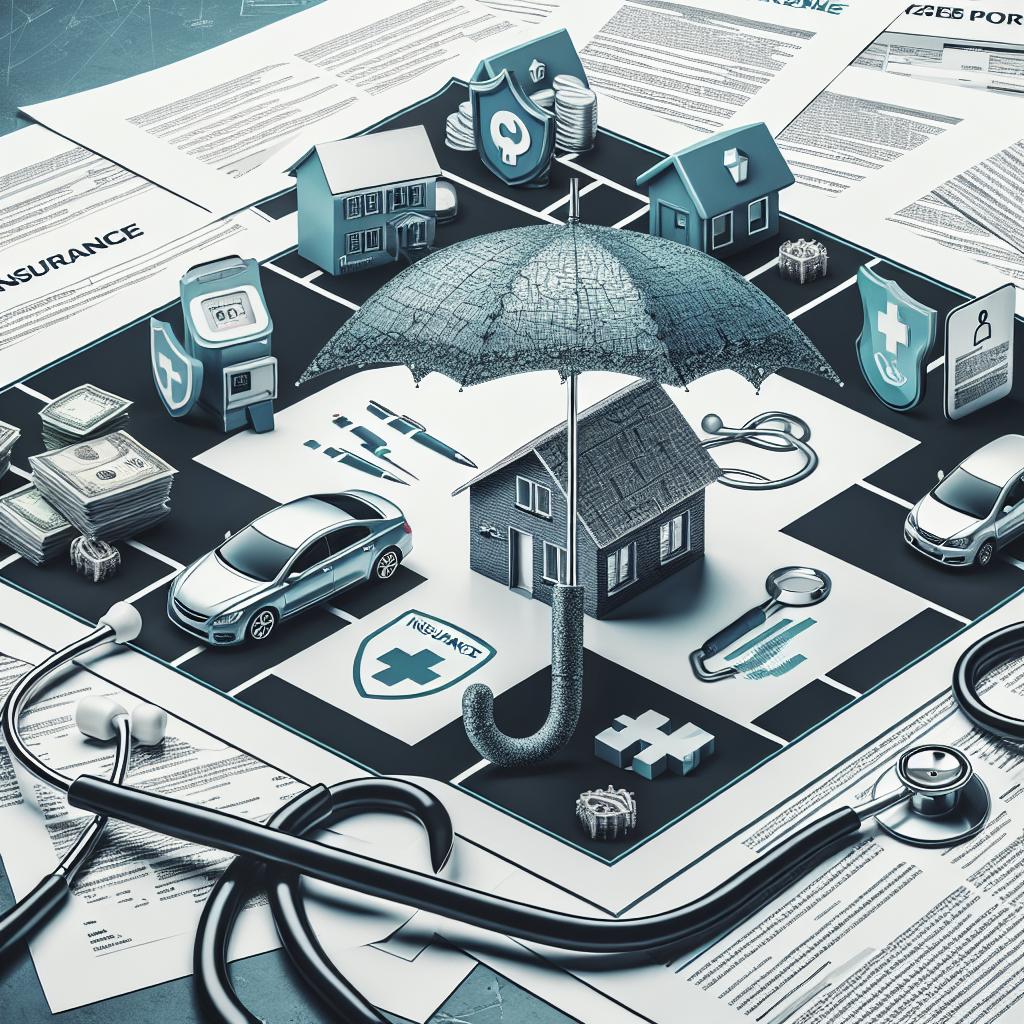“`html
How Does Insurance Impact Economic Stability?
Insurance, often seen as a safety net, embodies more than just individual protection; it’s a significant pillar supporting economic stability globally. This blog delves into the multifaceted role of insurance. We’ll explore insights from Deloitte experts about macroeconomic themes impacting the industry and the balance between short-term and long-term strategies. We’ll also examine why insurance is crucial for both personal and economic health, its developmental role, and insurance functionalities during conflicts. Finally, we’ll discuss the essential components for insurance development in emerging markets, emphasizing insurance as a fundamental factor for human prosperity throughout history. This comprehensive analysis aims to highlight insurance’s integral role in fostering secure and resilient economies.
Sponsored by
Today’s discussion on the far-reaching impacts of insurance on economic stability is proudly sponsored by industry leaders who prioritize financial security and advancement. As we navigate through the intricacies of how insurance shapes economies, we recognize the contributions of experts and organizations committed to fostering a well-rounded understanding of this critical sector.
Philip Moralee of Deloitte Hong Kong and Craig Bennie of Deloitte Australia consider the complex macroeconomic themes impacting the insurance industry, and how companies can best prepare for disruption.
Philip Moralee and Craig Bennie have highlighted the intricate interplay of macroeconomic factors shaping the global insurance landscape. From regulatory reforms to digital transformation, the insurance industry is navigating a dynamic environment filled with challenges and opportunities. Economic volatility, geopolitical tensions, and climate change are a few of the elements putting pressure on insurance companies to adapt swiftly.
To address these challenges, Moralee and Bennie suggest a proactive approach in which insurers cultivate agility to remain competitive. Companies are advised to embrace technological innovations and data analytics, ensuring they can quickly respond to changing market dynamics. By leveraging digital tools, insurers can streamline operations and enhance customer engagements while staying ahead of disruptive forces.
C-Suite Strategy: Balancing Short-Term Results and Long-Term Vision
For C-suite executives, striking a balance between delivering immediate financial results and pursuing long-term strategic goals presents a persistent challenge. Insurance executives must focus on satisfying current stakeholders through profitability while simultaneously aligning with future market trends to sustain growth.
Adopting a dual-focus strategy enables insurance organizations to not only meet fiscal expectations but to also cement their role in the broader economic framework. Building resilient markets that can weather crises involves long-term investments in technology, human resources, and regulatory compliance, elements critical in sustaining economic stability.
Why is it important to have insurance?
Insurance provides individuals and businesses with financial protection against unforeseen events, ensuring continuity and recovery when disasters strike. Beyond personal security, the presence of insurance facilitates economic activities by mitigating risks, which encourages entrepreneurship and investment. This transfer of risk from the individual to the insurer underpins economic resilience.
The importance of insurance extends beyond immediate financial compensation. It serves as a stabilizing force for economies, allowing markets to function smoothly without the perpetual fear of catastrophic losses. Its existence enables both businesses and consumers to focus on growth and development rather than solely on protection.
How can insurance help you?
On a personal level, insurance acts as a financial buffer during life’s uncertainties, such as accidents, health issues, or property damage. It provides the peace of mind that potential financial burdens will be met, allowing individuals to plan for the future with confidence.
For businesses, insurance is essential in risk management strategies. It supports companies in rebuilding and recovering from unexpected events, thus maintaining operational continuity. This assurance secures their ability to contribute to economic growth and stability, by protecting both physical assets and human capital.
Insurance as a cornerstone of development
Insurance plays a vital role in fostering economic development by promoting financial inclusion and stability. By providing security for investments and ventures, it encourages sustainable growth across various sectors. The insurance sector’s ability to pool risks and resources is crucial for infrastructure development and innovation.
Moreover, insurance schemes tailored to specific community needs can propel socio-economic advancement. Microinsurance, for instance, empowers low-income households by safeguarding them against severe economic losses, enabling them to escape the cycle of poverty and contribute more effectively to the economy.
Basic elements for effective insurance development in emerging markets
In emerging markets, certain foundational elements are critical for effective insurance development. These include regulatory frameworks that support transparency and growth, technological infrastructure that facilitates accessibility and affordability, and educational initiatives that enhance consumer awareness and understanding of insurance products.
The role of governments and international organizations in shaping these elements cannot be overstated. By implementing conducive policies and providing the necessary support structures, they can foster a robust insurance industry, which in turn contributes to regional economic stability and development.
What does insurance cover during a war? (II) International shipping
During war, insurance coverage can become a complex matter, particularly in sectors like international shipping. War risks insurance is designed to cover the perils associated with seafaring in conflict zones, safeguarding vessels, cargo, and crew against capture, damage, or destruction.
These specialized insurance policies help sustain global trade by minimizing the financial risks associated with geopolitical instability. By providing this crucial coverage, insurers ensure the continuation of international commerce, contributing to broader economic stability even in times of war.
Insurance: a springboard for the prosperity of humanity since the dawn of time.
Insurance’s role in bolstering human prosperity dates back thousands of years, evolving from simple risk-sharing arrangements to comprehensive systems that underpin modern economies. Its capacity to provide security, foster investment, and cushion against economic shocks makes it an indispensable facet of societal development.
As economies continue to grow and evolve, so too does the insurance industry, adapting to new risks and challenges. Its impact is visible not only in financial terms but also in how it enables societies to advance with confidence, making insurance a timeless pillar of economic resilience and human progress.
Summary of Main Points
| Section | Key Points |
|---|---|
| Sponsored by | Recognition of sponsorship in valuing financial security and advancement. |
| Complex Macroeconomic Themes | Insights into macroeconomic influences, challenges, and the necessity for agility and technological integration in the insurance industry. |
| C-Suite Strategy | Importance of balancing short-term financial goals with long-term strategic planning. |
| Importance of Insurance | Insurance’s role as a protective measure for individuals and businesses, fostering economic and market stability. |
| Functions of Insurance | Insurance provides financial security and continuity for both personal and business needs. |
| Insurance and Development | Essential role in economic development, promoting financial stability and inclusion. |
| Emerging Markets | Key elements for insurance proliferation in emerging regions include regulatory support and technological access. |
| War Coverage | War insurance sustains global trade by covering seafaring risks, crucial during geopolitical instability. |
| Historical Role | Historical evolution as a fundamental component of human economic prosperity and resilience. |
“`


